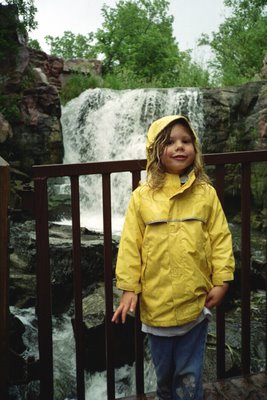G-d's Rocks
In parsha vayetze we read, Bereshit 28: 11 :
He encountered the place and spent the night there because the sun had set; he took from the stones of the place which he arranged around his head, and lay down in that place.
Our sages comment that the word for place, makom, can be understood as a Name of Hashem, making this substitution the passage then reads:
He encountered Hashem and spent the night there because the sun had set; he took from the stones of Hashem which he arranged around his head, and lay down in Hashem.
Now the beginning passage is understandable as it stands and is even clearer if one using the translation of prayed instead of encountered. So we have:
He prayed to Hashem and spent the night there because the sun had set;
But how are we to understand the phrase: the stones of Hashem? The Zohar, Pritzker edition 1:147B, reads:
He took of the stones of the place. It is not written: the stones of the place, but rather: of the stones of the place - precious stones, fine pearls, twelve supernal stones, as is written, twelve stones, underneath which lie twelve thousand, myriads of hewn stones, all stones. So, of the stones of the place, not: the stones of the place-the place of which we have spoken.
Now the Zohar understands makom as The Lesser Light (Shekinah) and stones as angels, as elucidated:
twelve stones....symbolizing twelve angels beneath Shekinah...twelve thousand myriads....thousands of other ministering angels
The Zohar then continues commenting on "around his head" which it reads in the plural as "heads":
"And put them at his heads. At whose heads? At the heads of that place . What does at the heads mean? If you say, 'Like a person putting something under his head' - no! Rather at its heads, at the four directions of the world: three stones to the north, three to the west, three to the south, three to the east, with that place above them, arrayed upon them.
Now this phrase is familiar as part of the bed time prayers. Michael to my right, Gabriel to my left, Uriel before me, Raphael behind me and over me the Divine Presence. The elucidation comments:
The four heads or cardinal points, stemming from the Shekinah are each overseen by one of the four archangels.....each accompanied by two subordinate angels. Jacob's placement of the twelve stones corresponds precisely to the stations of these angels.
So now the passage can be read as:
He prayed to Hashem and spent the night there because the sun had set; he selected certain of Hashem's angels which he positioned at the four directions, surrounding the Divine Presence manifest on earth,
And the concluding portion of the passage can be understood in the following way: According to Zoharic thought, Jacob represents tiferet or the greater light. By uniting the greater and lesser lights, divine bounty is drawn down enabling Jacob to experience the vision of the ladder. So we now read:
He prayed to Hashem and spent the night there because the sun had set; he selected certain of Hashem's angels which he positioned at the four directions, surrounding the Divine Presence manifest on earth, and by these actions united with the Divine Presence. And he dreamt, and behold! A ladder....



